Indian cinema has a rich history of drawing inspiration from mythology, particularly the Ramayana and Mahabharata. These ancient stories provide fertile ground for visually spectacular and spiritually resonant films that continue to resonate with contemporary audiences. From faithful adaptations to modern interpretations and myth-infused fantasy epics, here are some Bollywood films that have successfully brought Indian mythology back into the limelight and achieved significant box office success.
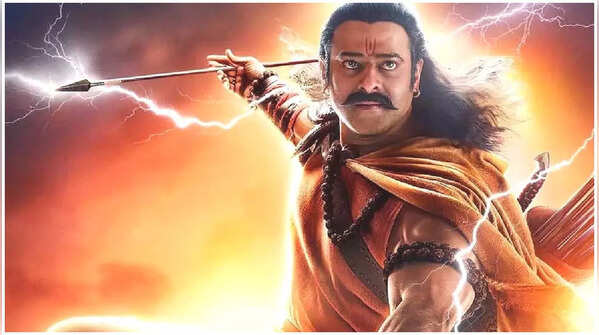

Adipurush, directed by Om Raut and based directly on the Ramayana, tells the tale of Raghav (Prabhas), who sets out to rescue his wife Janaki (Kriti Sanon) from the demon king Lankesh (Saif Ali Khan). The film delves into themes of righteousness and sacrifice. Despite mixed reviews regarding its visual effects and dialogue, Adipurush sparked significant cultural discussion, introducing the ancient epic to a new generation through cinematic spectacle.

Mani Ratnam’s Raavan presents a modern, psychological interpretation of the Ramayana. Abhishek Bachchan portrays Beera, a complex outlaw who kidnaps the wife of a police officer (Aishwarya Rai). This storyline mirrors the abduction of Sita by Ravana but subverts traditional notions of good and evil. Through powerful performances and intricate storytelling, Raavan prompts viewers to contemplate moral ambiguity, offering a thoughtful perspective on the epic’s timeless themes.

Ram Setu, directed by Abhishek Sharma, follows an atheist archaeologist (Akshay Kumar) tasked with investigating the historical veracity of the legendary bridge believed to have been built by Lord Rama. Initially skeptical, his discoveries lead him to embrace faith and believe in the epic's legacy. The film combines action with mythology, transforming a spiritual quest into a race against time. It ignited debates surrounding science, faith, and cultural identity in contemporary India.

While not a direct adaptation, Baahubali: The Beginning, directed by S.S. Rajamouli, draws strong thematic parallels to the Ramayana and other Indian legends. The film follows Shivudu, a young man who discovers his royal heritage and destiny. His journey of self-discovery, lost lineage, and moral duty mirrors the classic hero archetype found in ancient scriptures. With its grand visuals and mythic tone, Baahubali has become one of India’s most celebrated cinematic achievements.

Brahmastra: Part One – Shiva, directed by Ayan Mukerji, is a modern fantasy adventure heavily inspired by Hindu mythology, particularly the concept of divine astras or celestial weapons. The film stars Ranbir Kapoor as Shiva, a young man who discovers his connection to fire and his destiny as the protector of the Brahmāstra. The narrative seamlessly blends modern storytelling with spiritual symbolism, reintroducing ancient concepts such as energy, gurus, and dharma to contemporary audiences through a uniquely Indian lens.
Newer articles
Older articles
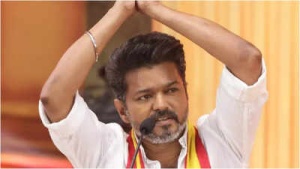 Vijay Officially Named TVK's Chief Minister Hopeful for Tamil Nadu's 2026 Election
Vijay Officially Named TVK's Chief Minister Hopeful for Tamil Nadu's 2026 Election
 RJ Mahvash Prioritizes Work Over Buzz, Addresses Link-Up Speculation
RJ Mahvash Prioritizes Work Over Buzz, Addresses Link-Up Speculation
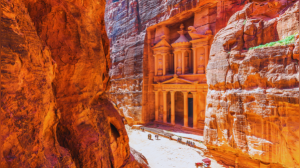 UNESCO's World Heritage Wonders: Unveiling 10 Iconic Sites, From Petra to the Pyramids
UNESCO's World Heritage Wonders: Unveiling 10 Iconic Sites, From Petra to the Pyramids
 JPG to PDF: A Comprehensive Guide for Graphic Designers & Professionals
JPG to PDF: A Comprehensive Guide for Graphic Designers & Professionals
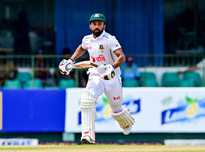 Shadman Islam Defends Bangladesh Batters After Day 1 Struggles Against Sri Lanka
Shadman Islam Defends Bangladesh Batters After Day 1 Struggles Against Sri Lanka
 iQoo Z9 Turbo: Rumored Specs Emerge – Snapdragon 8s Gen 3, 6000mAh Battery Highlighted
iQoo Z9 Turbo: Rumored Specs Emerge – Snapdragon 8s Gen 3, 6000mAh Battery Highlighted
 England's Bold Claim: Could They Have Chased Down 450 Against India?
England's Bold Claim: Could They Have Chased Down 450 Against India?
 5 Often-Missed Warning Signs of Bladder Cancer You Need to Know
5 Often-Missed Warning Signs of Bladder Cancer You Need to Know
 Tick Bite Paralyzes Fitness Influencer: A Wake-Up Call for Outdoor Enthusiasts
Tick Bite Paralyzes Fitness Influencer: A Wake-Up Call for Outdoor Enthusiasts
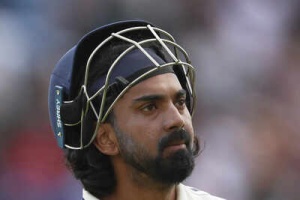 KL Rahul Puts Country First, Prioritizes England Tests Over Newborn Child
KL Rahul Puts Country First, Prioritizes England Tests Over Newborn Child